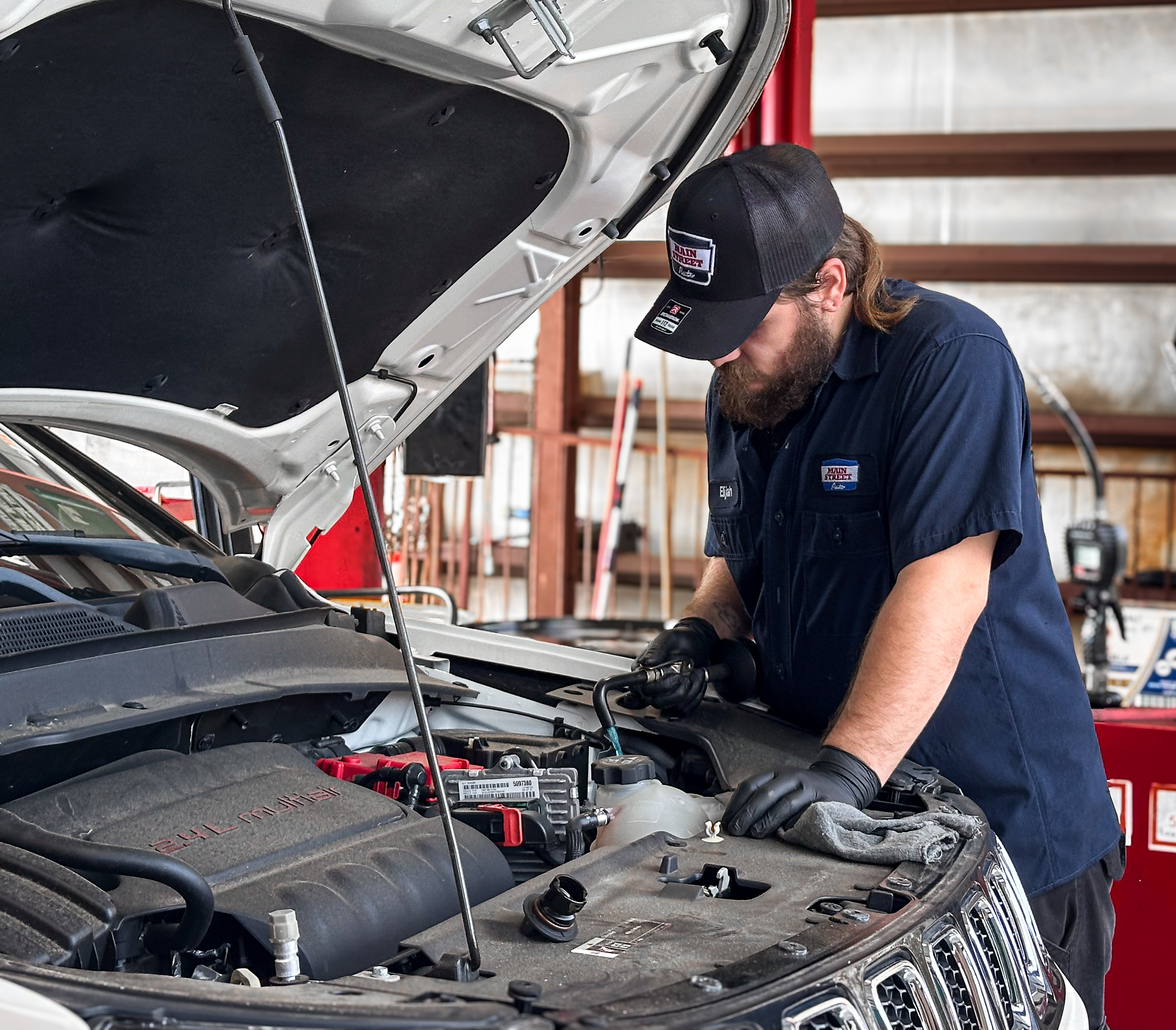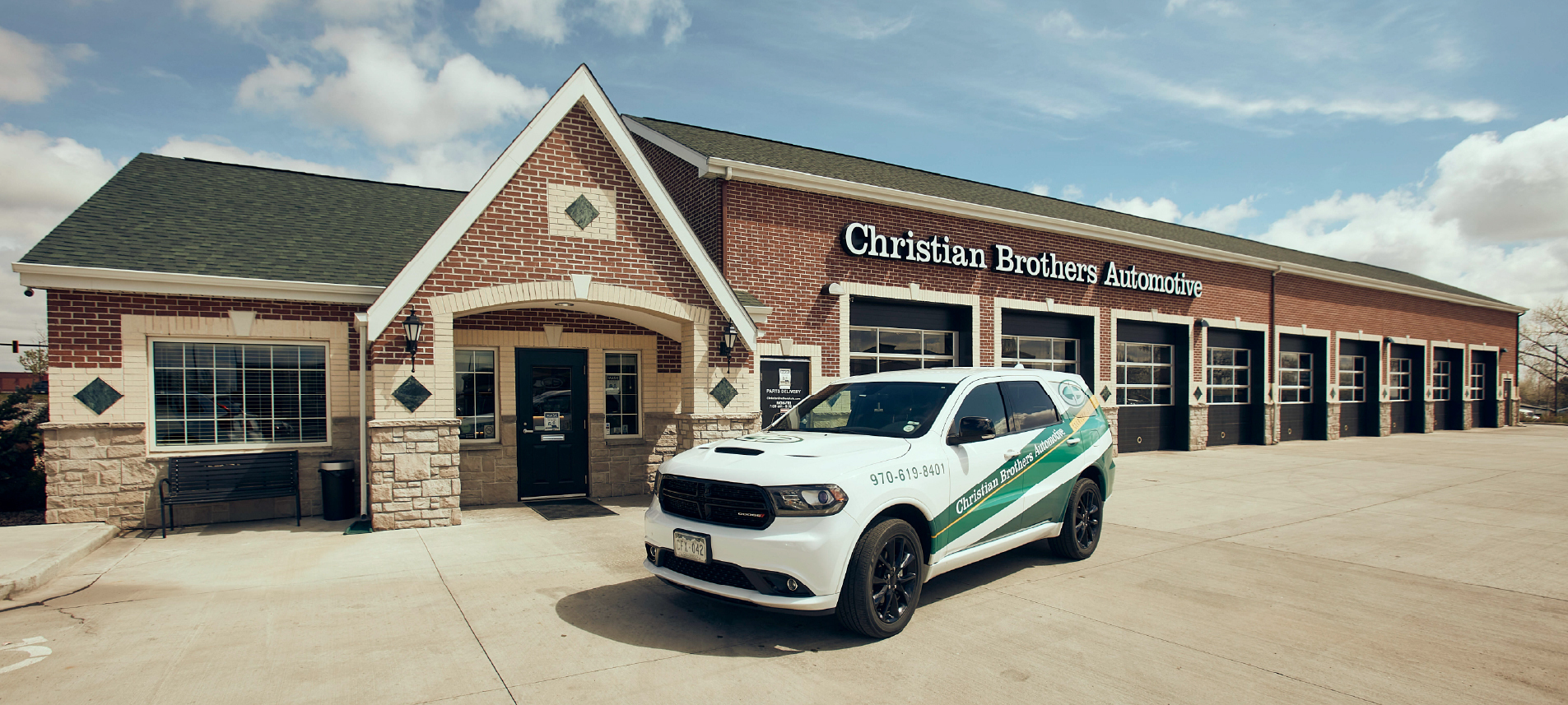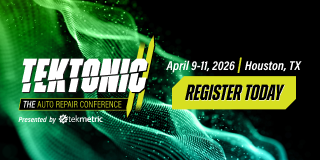Mrs. Jones doesn’t care if her alternator fluid is leaking. She cares if she can get her kid to school, or her mom to the doctor. Stan’s helps with that. Stan’s helps solve problems; auto repair is just part of how they accomplish that goal.
Scott’s parents, Stan & Donna, started Stan’s Automotive in 1973 when Lafayette was a small town with a population of about 4,000. Today, their son Scott and his team serve a community of about 100,000, repairing a full range of domestic and foreign vehicles. They have grown his family’s shop alongside Lafayette and the surrounding area. We caught up with Scott to learn more about him and his team, how they continue to refine Stan’s Automotive, and how they continue to find new ways to help the people in his hometown of Lafayette.

47 Years of Quality, Care, and Giving Back
After college, when I returned to working with dad, he showed me that the business was really not about fixing cars, but about our relationships with people. A turning point for me was realizing that ‘family-owned business’ means that my family values are my business values—and that dictates how I treat my staff and how we treat our clients. I want to take care of my people. At least a third of my staff has been with me for the entire 20 years that I've been here. So I owe a lot of loyalty to them and I want to see them handsomely rewarded as we grow.
My fundamental philosophy is that if you live to help other people win, then ultimately you're going to win, too.
We all care and look out for each other. If one of our staff has a family emergency, we all pull together so that they can take the time they need to be with their family. The definition I have of "doing things right’’ is this: Am I taking care of my team, my customers, and my business? If I can say “yes” then we’re doing it right. Profitability, sustainability, and growth will follow.
We had that happen this past year. I won't get into it, but basically a staff member had to take leave to take care of his wife. What we had to do was support him and do whatever it took for him to get through what he and his wife were going through in their life, and the business became secondary to treating him like a member of our family. The best part is, everybody else here and all of our other technicians really stepped up, and we made it through it and actually managed to grow through it.
There is no secret to sticking around for 47 years; we just treat everyone like family and stay involved in the success of the community.
Helping Our Community Succeed
Our business has grown up in a small town that has become a big town. I think we owe a loyalty to our community. I always feel like I want to give back, so we do. We partner with a multitude of schools and community groups and other things to grow programs here locally. And then my wife and I do mission work in Ecuador.
We see doing the right thing as a philosophy and not a tactic. It's made us very successful.
We set aside the majority of our marketing budget to help people. Another ad in a newspaper doesn't help people. Solving people's problems does.
For example, we helped the school across the street. Their band's boosters program came to me and they wanted me to write them a big check. I said, "I can't write you a big check, but there's this program that I have. I give you these coupons. They cost you $0. You go sell them, and they're worth about $200 in value to the customer. You go sell them to people that you know and let the kids' parents sell 'em at work and let them sell 'em on social media." They came to me for $500 and what they got was $6,500 that they were able to generate out of these coupons that I gave them.
We've got a community food bank. We keep a food bin in our waiting area and we're constantly gathering food for them, and then we do our own stuff to give to them also. I've got a coffee and a soda bar in my waiting area, and I accept donations. Every month I take those donations and add a chunk of money from the business and that goes to our Meals on Wheels program here in the area. I've done that for like 20 years. And we just stay plugged in, we stay connected. When something comes up and one of my guys is like, "Can I go to this event?"
Yeah, absolutely, go! Go represent us and go preach the gospel of goodwill to everybody. And it's been pretty awesome.
I've probably given away somewhere in the neighborhood of $15,000 worth of auto repair this year, and that's been done for anything from the local police department showing up and saying, "Hey, I encountered this family on a call. They're having problems. One of their problems is with the car. Can you help?" Of course I can help. A couple weeks ago, a church reached out to us to ask if we could fix a woman's heater who just moved here from Florida. Somebody had bypassed her heater core because it was too expensive for her to repair. That was fine when she lived in Florida, but in Colorado during the winter, a heater is pretty important. We took care of it because under the circumstances it was the right thing to do.
So now I have people coming in sayin, "Hey, I'm here because you guys are awesome and you supported this program. Oh, and by the way, turns out I have a car!" People laugh at me sometimes when I sit in groups of shop owners and they're like, "That's really old school." Yup. Guess what? It works. 'Cause people are people and relationships are relationships. You've got to nurture relationships.

Adopting a New Shop Management System
When my dad started Stan's in 1973, they were running on scratch paper, pens, and pencils like everybody else. Throughout the years, we adopted shop management systems that were fit for the level of business that we were doing at the time.
In the mid-80's we went to a UNIX-based system that was pretty primitive, but it did a lot. My mom went to a training class on it, and I don't think she even realized it, but she was coding everything that needed to be done. She was programming in UNIX before that was a thing that people were doing! So that carried us into probably the mid-90's , give or take, maybe early 90's. Then we went to a DOS-based system and we stayed with that for probably 10 years, give or take. We went from that to RO Writer. We were with RO Writer for probably 14 or 15 years.
Then in July of '18, when I bought the shop, we decided that it was a good time to make a switch, and we switched to a software company that I won't even give them credence of saying their name. They've been in the industry for a long time. Unfortunately, as it turned out, they got purchased by a larger company on the literal day we switched over and went live. And that was a complete and total disaster. We spent five months last year pretty much limping along and not even knowing what our real numbers were. I went back to doing accounting manually. It seriously was a frickin' disaster.
So two months into that, I knew it was a disaster, and I was looking for a solution to my crisis. And that was when I started looking at some of the more progressive companies that were leading the way with technology. That's how I came to get to meet people at Tekmetric.
For the sake of my team, I wanted them to be able to accomplish more without simply working harder. If I can put a tool in their hands that helps them do their job in half the time, it empowers them to put more of their focus on client service and run a better shop. That's motivating. That's growing. That's transforming.
The first thing that we noticed when we switched to Tekmetric was that the processes are fairly intuitive. Frankly, it's kind of scary to think that we just switched over to this software and there's not a 400 page manual for me to sit down and read through and figure out how it works. We just had to sit down with it and figure out and how it worked. And the fact that that happened smoothly says a lot to the workflow processes that they put into place. They just make sense. It's very intuitive and pretty easy for a service advisor to keep up with volume using this software.
Tekmetric also empowers our clients. They need to feel like they are more than just a repair order. We give them options to communicate with us on their terms: we can text, email, or call them about their repairs. The more communication options our shop management system provides, the more we are able to give our clients the kind of experience that shows how much we value and respect them.
But the biggest thing is that the team at Tekmetric listens to me and really drills down to solving shop owners' pain points. It's not just "What do we want?" but also "Why does it need to be a certain way?" And that, quite frankly, is the difference-maker for Tekmetric. Every other shop management system is either written by a shop owner and is tailored to exactly how they run that shop, or it's written by some software developers who don't have a clue about how a shop runs, and they think they do, and they want you to change all your processes and procedures to match what they wrote. Tekmetric has done an awesome job of surrounding themselves with people in the industry, mostly people much smarter than me, who have really helped them figure out what an average shop owner looks like and needs.
For more information about Stan's Automotive, visit stansautomotive.com


.jpg)


.jpeg)
%20(1).jpeg)
.jpeg)
.jpeg)
.jpeg)

.svg)



.svg)